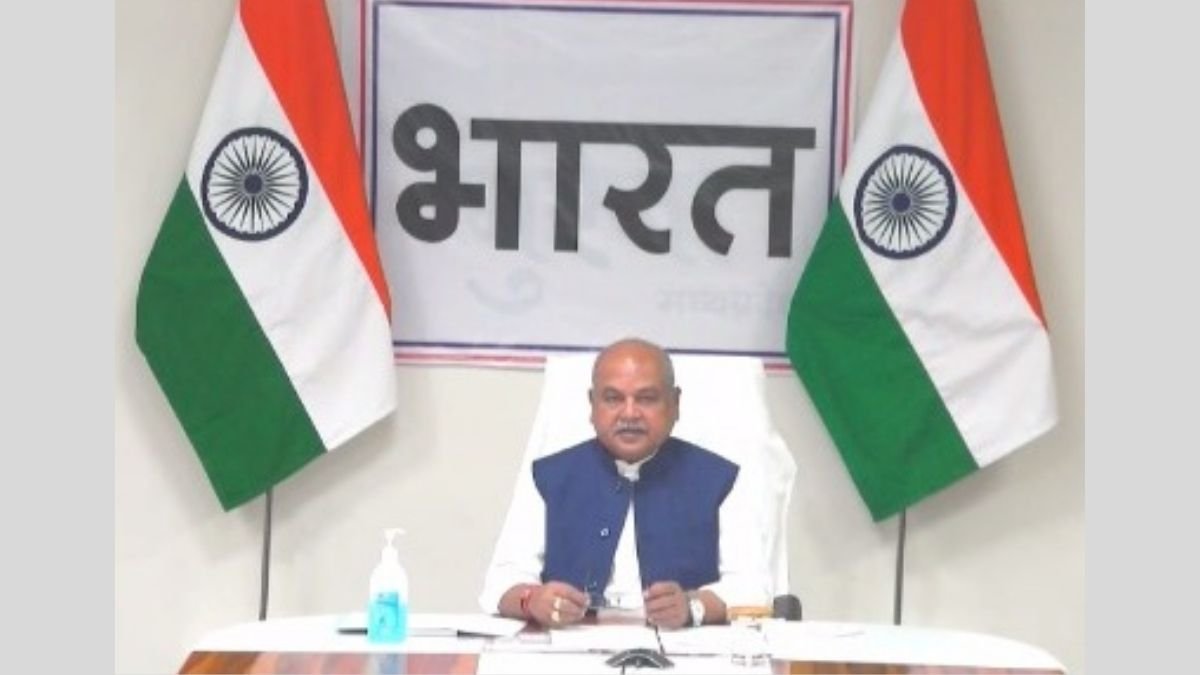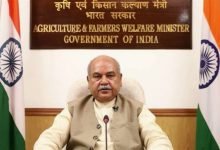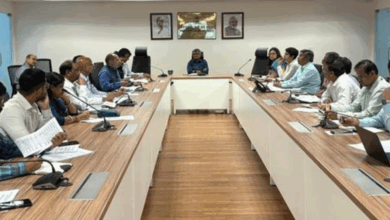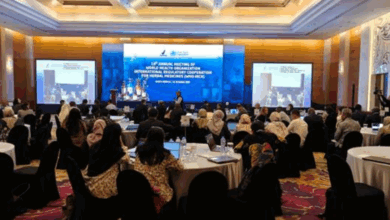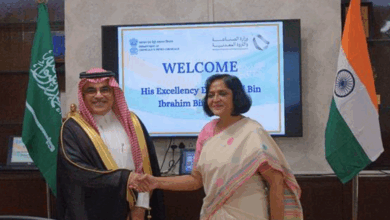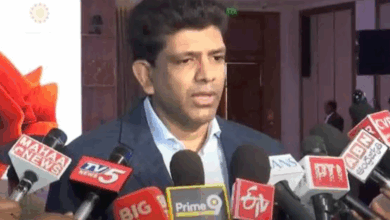Union Minister Shri Narendra Singh Tomar presents the progress of Indian Agriculture in the meeting of G-20 Agriculture Ministers
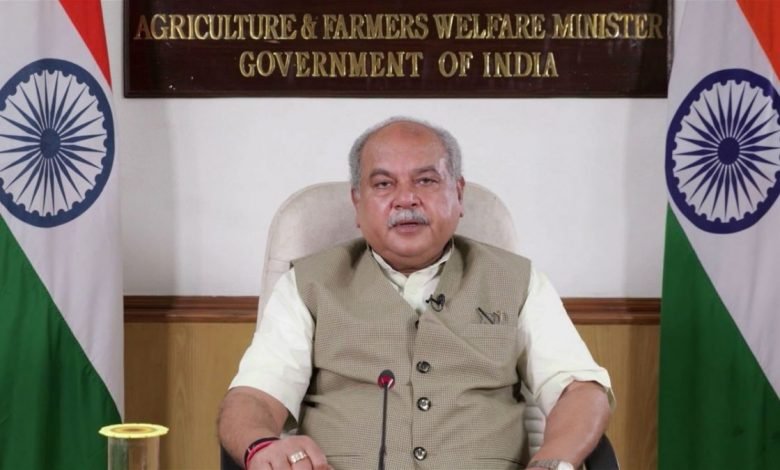
India is becoming the destination country for healthy food, says Shri Narendra Singh Tomar
Union Minister of Agriculture and Farmers Welfare, Shri Narendra Singh Tomar said that the Government of India has emphasized re-introducing traditional food items including millet, other nutritious cereals, fruits and vegetables, fish, dairy, and organic products in the diet of the people. Their production has been phenomenal in India in recent years and India is becoming a destination country for healthy food items. Shri Narendra Singh Tomar said this during the second day’s session of the G-20 Agriculture Ministers’ meeting. The theme of this session was “Working together to achieve the Zero Hunger goal: successful projects implemented by the Ministries of Agriculture”.
In his virtual address at the meeting, Shri Narendra Singh Tomar said that keeping in mind the importance of Nutri-cereals, the United Nations has accepted the proposal of the Government of India and declared the year 2023 as the International Year of Millets. He appealed to the nations to support the celebration of Millet Year to promote nutrition and sustainable agriculture. Shri Tomar stated that the agriculture sector in India has achieved great success after independence. The Indian agriculture sector remained unaffected even during the COVID pandemic.
The Minister expressed happiness that the various initiatives of the Government of India to keep the Agri-market dynamic along with the Agri-input supply chain during COVID have helped the agriculture sector in better performance. During the year 2020-2021, along with an increase in the production of food grains, there has been a significant increase in exports.
Shri Narendra Singh Tomar said that biofortified varieties are the source of a staple diet rich in micronutrients. They are being promoted to remove malnutrition. 17 such varieties of different crops have been developed and released for cultivation. The Government of India under the leadership of Prime Minister Shri Narendra Modi has taken steps to increase the optimal use of water resources, create infrastructure for irrigation, conserve soil fertility with balanced use of fertilizers, provide connectivity from farms to markets.
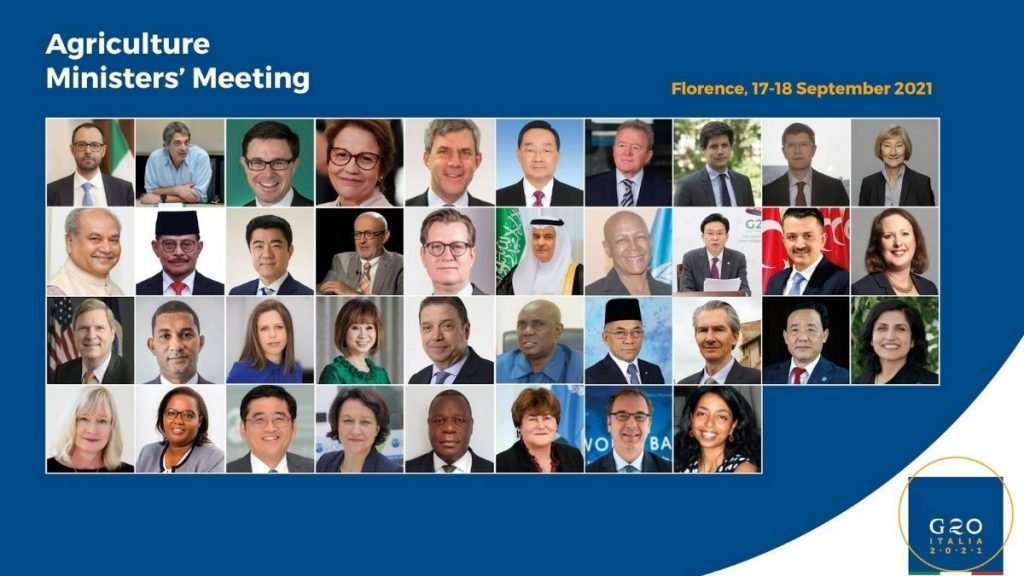
The Union Minister informed that under the Pradhan Mantri Kisan Samman Nidhi Yojana, the government is providing income support of Rs.6,000 per year to small farmers. So far, Rs 1.58 lakh crore has been deposited in the bank accounts of more than 11.37 crore farmers under this scheme. He said that India is fully aware of its commitments on the issues of climate change and several steps have been taken to make agriculture sustainable.
The ‘Per Drop- More Crop’ scheme for irrigation and ‘Paramparagat Krishi Vikas Yojana’ for organic farming is being successfully implemented. Unfavorable weather affects the production and income of the farmers, in such a situation, the Government of India has implemented the Pradhan Mantri Fasal Bima Yojana to provide insurance cover for the farmers. To address the malnutrition problem, India is running the world’s largest food-based safety net program, which includes the Public Distribution System and the Mid-Day Meal Scheme.
Shri Narendra Singh Tomar said that India will share best practices and build the capacities of other developing countries. He reiterated India’s resolve to continue working together to achieve the ‘Poverty Reduction’ and ‘Zero Hunger Goal. He also reiterated India’s resolve to cooperate in R&D and exchange of best practices to enhance productivity.
Union Minister Shri Narendra Singh Tomar led a four-member Indian delegation to the G20 Ministerial meeting. In view of the COVID-19 pandemic, this meeting was organized in hybrid mode. The Indian Delegation included Dr. Abhilaksh Likhi, Additional Secretary, Union Ministry of Agriculture and Farmers Welfare; Joint Secretary Ms. Alaknanda Dayal and Dr. B. Rajender.
Disclaimer: this is an official press release by pib.

